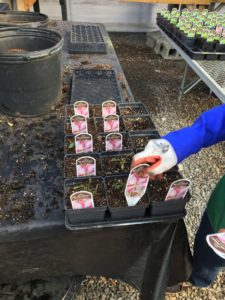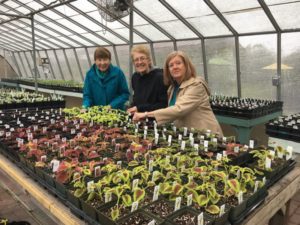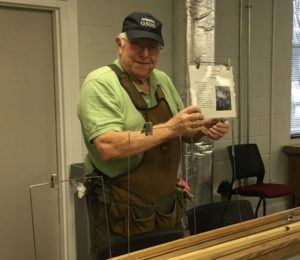Learning to Grow
go.ncsu.edu/readext?592146
en Español / em Português
El inglés es el idioma de control de esta página. En la medida en que haya algún conflicto entre la traducción al inglés y la traducción, el inglés prevalece.
Al hacer clic en el enlace de traducción se activa un servicio de traducción gratuito para convertir la página al español. Al igual que con cualquier traducción por Internet, la conversión no es sensible al contexto y puede que no traduzca el texto en su significado original. NC State Extension no garantiza la exactitud del texto traducido. Por favor, tenga en cuenta que algunas aplicaciones y/o servicios pueden no funcionar como se espera cuando se traducen.
Português
Inglês é o idioma de controle desta página. Na medida que haja algum conflito entre o texto original em Inglês e a tradução, o Inglês prevalece.
Ao clicar no link de tradução, um serviço gratuito de tradução será ativado para converter a página para o Português. Como em qualquer tradução pela internet, a conversão não é sensivel ao contexto e pode não ocorrer a tradução para o significado orginal. O serviço de Extensão da Carolina do Norte (NC State Extension) não garante a exatidão do texto traduzido. Por favor, observe que algumas funções ou serviços podem não funcionar como esperado após a tradução.
English
English is the controlling language of this page. To the extent there is any conflict between the English text and the translation, English controls.
Clicking on the translation link activates a free translation service to convert the page to Spanish. As with any Internet translation, the conversion is not context-sensitive and may not translate the text to its original meaning. NC State Extension does not guarantee the accuracy of the translated text. Please note that some applications and/or services may not function as expected when translated.
Collapse ▲It’s that time of year again when the days are longer, warmer and the weather invites us out into our gardens. 2018 was not a forgiving year for our plants. In Wilmington, 23 inches of rain fell at the airport during Florence which was the single largest rain event in Wilmington’s history since 1877! Precipitation totaled 102 inches for the year. Many folks lost trees, shrubs, and perennials from too much moisture.
The good news is that it is a new year and a great time to replace those plants that were lost. The annual Extension Master Gardener℠ Volunteer Association of New Hanover County plant sale is a perfect place to shop. Over 2,000 plants are grown in house for the sale. Plants are grown from seeds, plugs, cuttings and divisions. It is quite a commitment to raise these babies into healthy retail-ready plants that can be replanted at their new residence.
Propagation is in full swing in January when seedlings are planted watered, pinched, fertilized and spaced. It may not be a glamorous job but it is an incredible learning experience for the thirty extension master gardener volunteers who are enrolled in this advanced training.
To limit the spread of diseases and insects I suggest you diversify your gardens rather than planting the same plant all along your property line. Diseases and insects are host specific so if all the plants you select are from the same genus and species they will all be susceptible to the same diseases and insects. Interspersing plants with varying leaf textures creates a beautiful and eye-catching border and keeps diseases and insects from spreading from plant to plant.
Stop by the New Hanover County Arboretum on April 11–14, 2019, to find a great selection of plant material to fill in those empty spots in the garden, get your tools sharpened or buy an originally designed trellis that the carpenters of the arboretum built!






